Worm castings are very desirable in gardening, and if you have done any research into natural fertilizers, you will undoubtedly have come across their praise.
If you’ve started composting and wondered what worm castings are, and if you can make them at home, this is the article for you.
Purchasing worm castings is very popular, but they can be rather pricey. The good news is that you can turn your food waste into worm castings with little maintenance and expense through the vermicomposting process right at home.
What are Worm Castings?
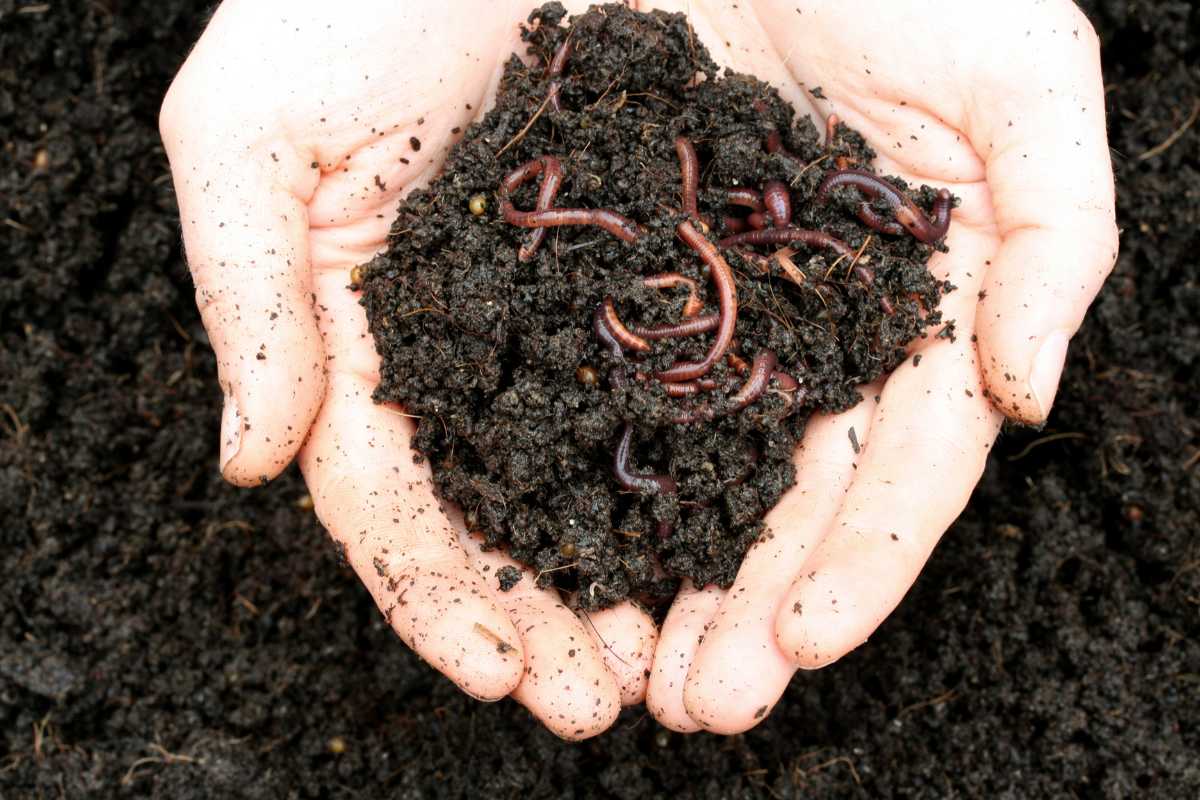
Worm casting is a fancy gardener’s term for worm poop. Worm castings are organic fertilizer produced from the decomposition of worm waste.
Worm poop is full of magnificent microorganisms and beneficial nutrients. The best worm castings come from composting worms. Regular earthworms absorb nutrients through their skin rather than ingest them, so earthworm castings are not full of essential nutrients.
Worm castings can be used as a soil amendment or mulch because the castings are rich in nutrients. They also provide a natural source of food for earthworms, beneficial insects, and other animals.
Composting worms are usually more tolerant of higher temperatures too and live in the top few inches of soil. They feed off organic matter and leave behind nutrient-rich castings that fertilize and improve the topsoil.
- Related Article: Worm Castings vs Vermicompost
Benefits of Worm Castings
There are many benefits of worm castings, and recent studies have surprised us with their findings. In nature, these worms would eat up any decaying plant and animal matter, enriching the topsoil.
However, decades of chemical-heavy farming have disrupted this natural soil replenishment. This is one reason that worm castings are becoming so popular as people re-discover the importance of natural processes.
Here is a list of the top benefits of worm castings.
1. Worm Castings Actively Improve Soil Structure
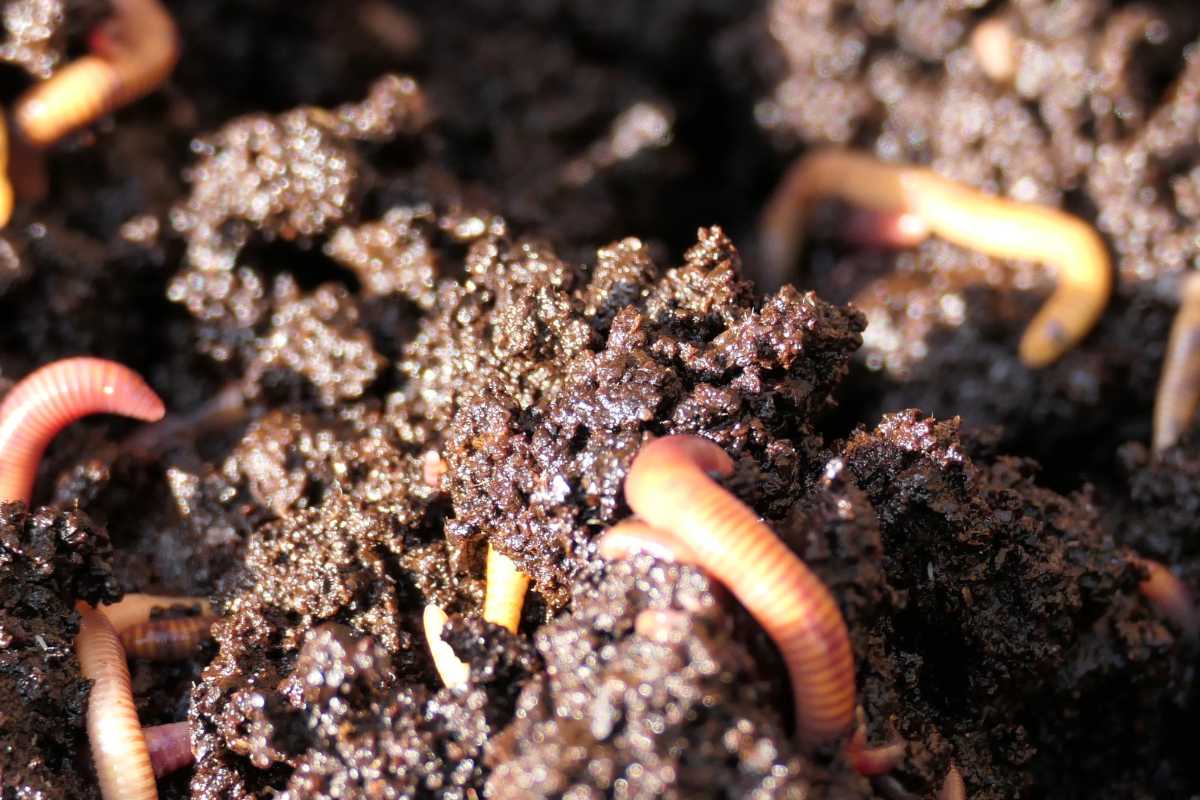
Worm castings are dense organic material with plenty of plant nourishment and microorganisms that help improve the condition of your soil. Their composition helps with water retention and soil aeration for healthy soil.
These properties make worm castings the perfect amendment for any soil as they will help keep moisture in sandy soil and break up clay. That also helps prevent the development of root rot.
2. Worm Castings Act as Insect Repellent
It is thought that the castings help to keep the pest population under control. Recent studies have found that spreading worm castings around plant bases and the soil will effectively repel spider mites, whiteflies, and aphids.
It has been suggested that worm castings contain an enzyme that deters bugs or that plants that are strong enough to resist bug attacks and are less appealing to pests.
Whatever the reason, insect populations on plants that have been fertilized with worm castings are significantly lower than on plants that have not.
3. Worm Castings Help Prevent Diseases
There have been many studies about the benefits of worm castings, and one of the findings is that they can suppress some soil-borne plant diseases with their disease-preventing properties.
It has been discovered that the beneficial microbes in worm castings can combat pathogens found in the soil and prevent infection of seeds and seedlings.
4. Beneficial Microbial Activity in Worm Castings
Microbial activity in worm castings can not only improve the health of your soil, but also the ecosystem of your compost.
The microbial activity makes worm castings an excellent compost starter if you are starting a new compost pile outside.
How to Use Worm Castings
Due to their numerous benefits, worm castings have a wide range of uses. Here are the three main uses that give the most benefits to plants:
1. Use Worm Castings as Plant Fertilizer
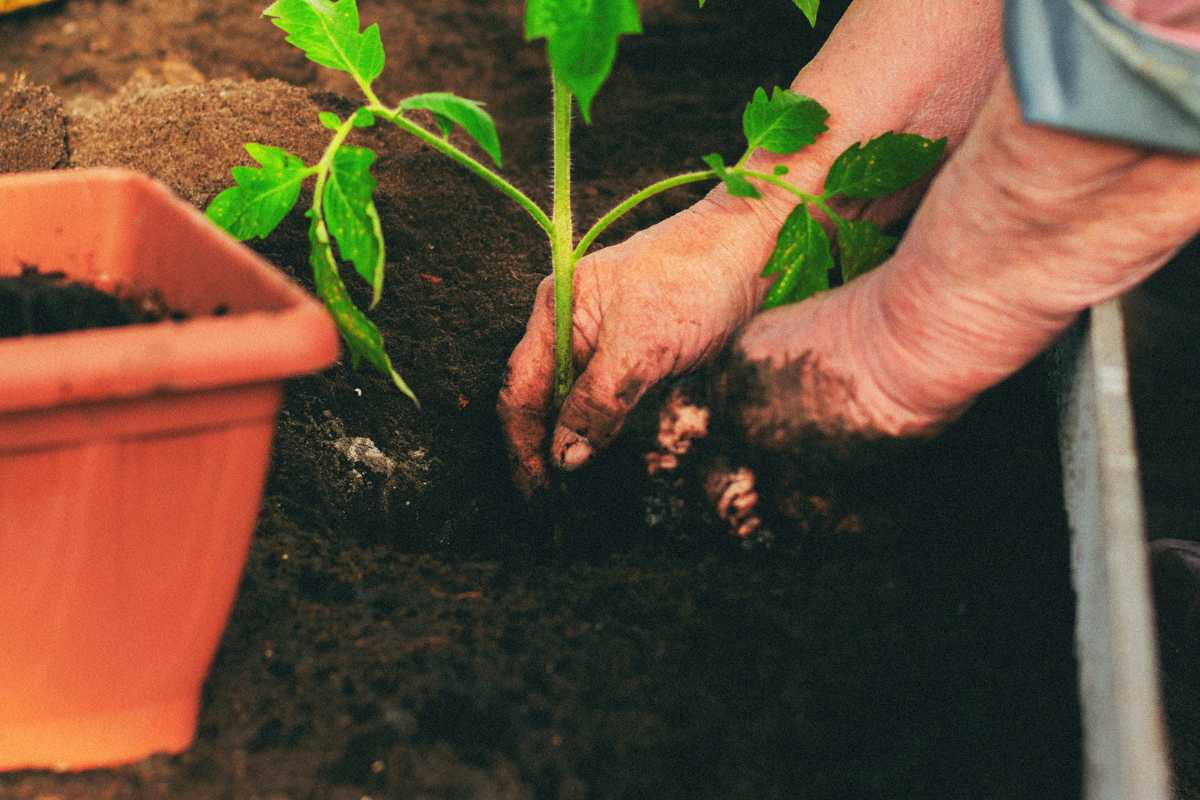
Using worm castings as a natural fertilizer is the primary use of worm castings. You can dig the castings into the soil, sprinkle them on the top as mulch, or add them to a potting mix.
You can also make a version of compost tea from the worm poo, known as worm tea, and use it as a liquid fertilizer.
For more information on making worm tea, see the article on How To Make Worm Tea.
2. Use Worm Castings as a Soil Amendment
Due to its properties and composition, worm castings make an excellent soil amendment to provide nutrients to plants for healthy plant growth. The humic acid in the worm castings also help to accelerate plant growth.
You can use them to improve sandy or clay soils or help revive soil that has been stripped of its natural nutrients. It is the perfect additive to potting mixes, especially for houseplants.
3. Use Worm Castings for Pest and Disease Prevention
As previously mentioned, one of the major benefits of worm castings is as a great natural form of pest and disease control.
You can sprinkle dried castings around your plants or dig fresh castings into the soil. For this reason, they are in high demand from fruit and vegetable gardeners.
Chemical Fertilizers vs Worm Castings
Asking for the difference between chemical fertilizers and worm castings is like asking about the difference between fossil fuels and renewable energy.
Chemical fertilizers use harmful chemicals and heavy metals to try and achieve optimum growth of plants, while worm castings are an all natural product. Castings are a plant superfood that can be used outdoors and indoors.
Worm castings are the finished product of a natural process. Their production has limited ecological impact, and they are a sustainable source of fertilizer.
Over time, worm castings will help the soil stay healthy and productive. As organic matter, adding it to the dirt not only fertilizes that soil but, supports its structure and bulk.
Chemical fertilizers may have quicker, more noticeable results, but they are not sustainable. Chemical fertilizers destroy the soil’s natural balance, killing beneficial microorganisms and replacing them with chemicals that have limited capacity for producing nutrition.
Using chemical fertilizers can strip the earth, causing erosion and nutrient deficiency. Once you start to use chemical fertilizer, you may find that you will need it more often, and after a time, the soil can become unusable.
How to Make Worm Castings
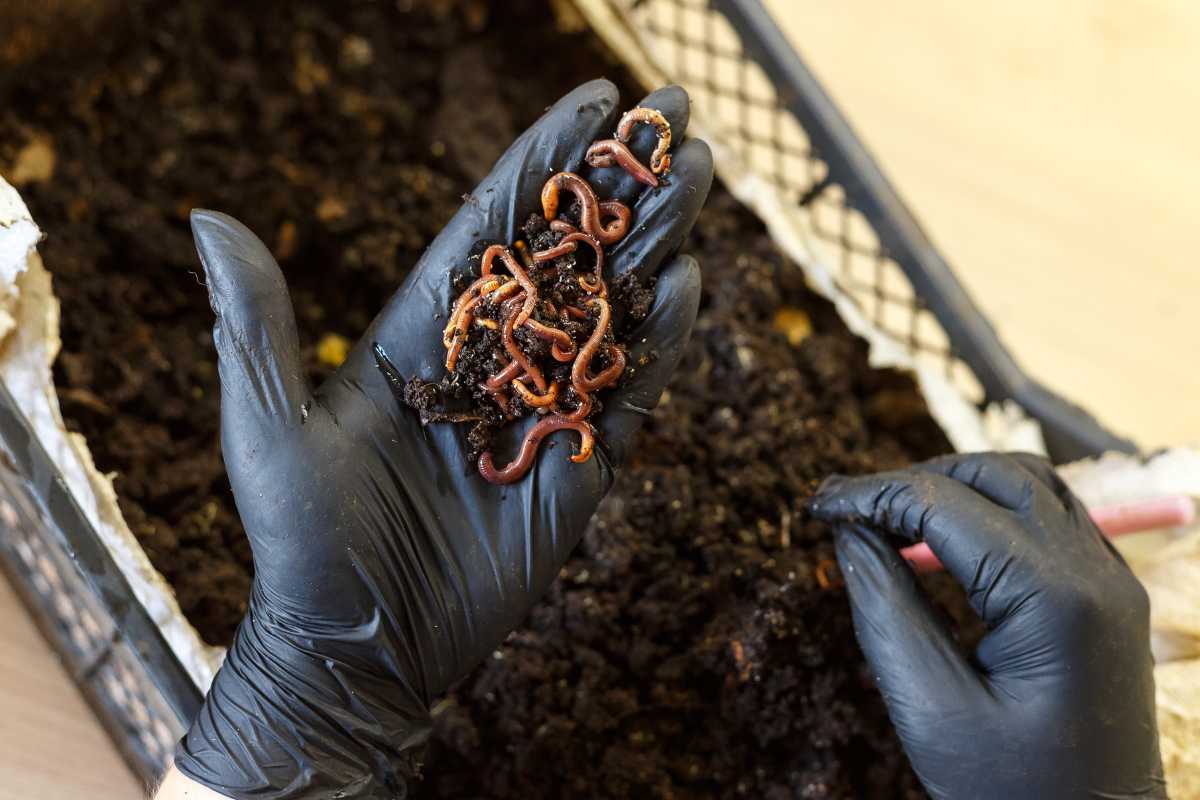
Worm castings will be found in open-air compost bins, but it is impossible to know what percentage of your finished compost is worm castings.
The good news is there is a way you can make worm castings at home – well, technically, the worms will make the castings!
The term for using worms to produce worm castings is called vermicomposting. There are many different ways you can do it, but it usually consists of adding compost worms to an enclosed system, a worm composter.
You can feed the worms food scraps, other kitchen scraps, dried leaves, garden waste, shredded cardboard, paper, and other compostable ingredients. The worms will ingest the compost materials and make worm castings.
Worm compost bins are available to buy online, or you can make your own. See Best Worm Composters to see the best ones that you can purchase, and see the Guide to Vermicomposting to learn how to make your own worm compost bin.
It is important that you choose the right worm for your worm composter. Compost worms are the most productive, and many varieties are available to purchase online. Red wriggler worms are one of the better worm species for composting.
How to Harvest Worm Castings
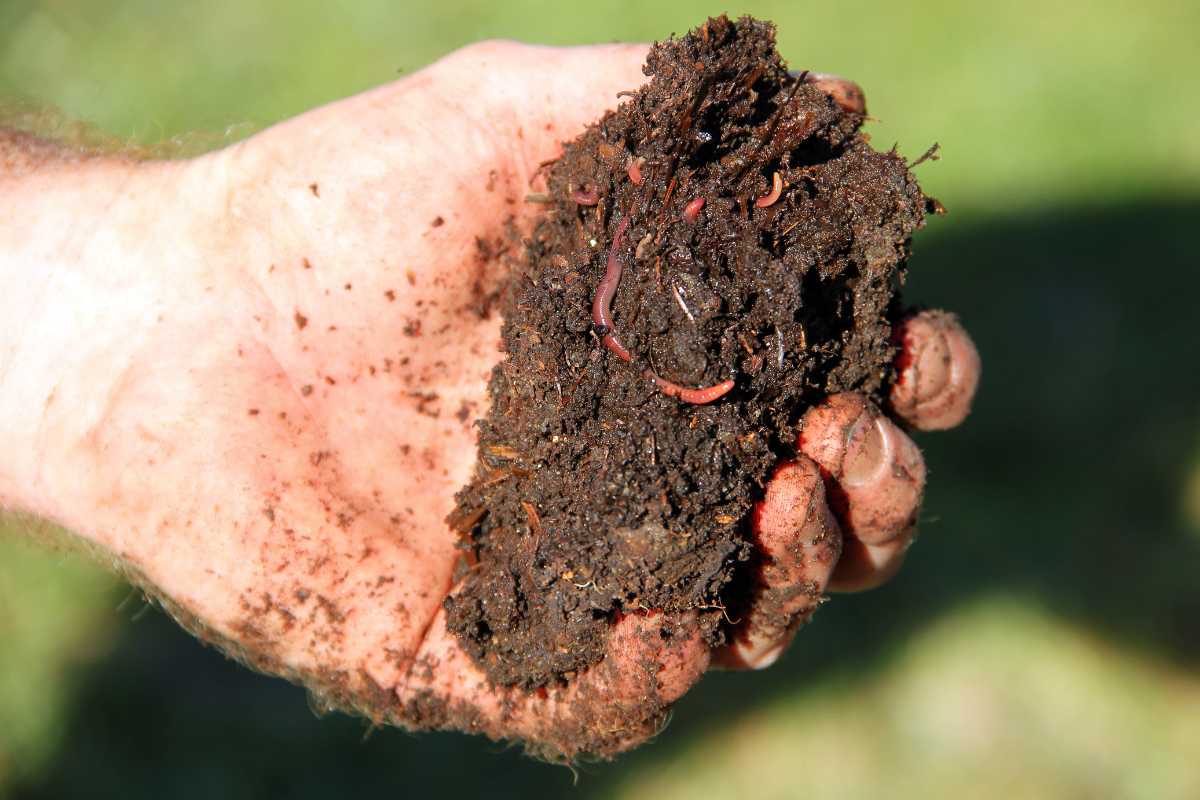
Worm casting may be harvested using various techniques.
The Dump and Sort method is the most popular way of harvesting worm castings. Lay down some sheets of plastic or newspaper, and empty out the contents from one of the trays in the worm bin.
Use a screen that will allow compost to fall through as it collects the worm castings and worms. Think of it as panning for gold, since worm castings are often referred to as Black Gold.
Pick up the worms that haven’t moved to another tray and add them to a tray with fresh compost materials. You can then start using the leftover castings for your plants.
Worm Castings Final Thoughts
All in all, worm castings are a great way to add nutrients back into the soil. They are an excellent addition to any garden as Black Gold.
If you need more worm castings than your worms are producing, you can always buy pure worm castings line.
Learn more about composting with worms from these articles:
Worm Castings FAQs
Are worm castings poop?
Yes, worm castings are poop produced by worms. Worms will eat the fresh food scraps and other compostable materials, then excrete the worm castings after digestion. These worm castings are rich in essential nutrients that can be used as plant fertilizer for healthy plant growth.
How do you get worm castings?
Worm castings are made by worms after digesting the food they eat, and the castings are left in the compost. You can get the castings by sifting through the worm composter and collecting them. Alternatively, you can buy worm castings from a store that sells organic gardening supplies.
Is worm castings the same as compost?
Worm castings are similar to compost, but they are richer in nutrients and often used as fertilizer because they are rich in beneficial microbes. Worm castings are created when worms eat organic matter such as kitchen scraps and garden waste. These castings are then collected and dried before being added to the soil. When applied directly onto plants, dry castings help improve plant health by increasing nutrient availability. However, if added to soil before planting or potted up, they increase water retention and promote root development.
What are the disadvantages of worm castings?
Worm castings are considered by many gardeners to be the best fertilizer for their gardens, but there are also some drawbacks. Worm castings can usually take 3-6 months before they are realized, even up to a year depending on your vermicomposting system. The cost of earthworm castings is also higher, especially if you want to scale your system large enough for a large garden.
Are there worm eggs in worm castings?
Yes, worm eggs may appear in worm castings. Since worms lay eggs, they won’t stop laying eggs just because they’re in a compost bin. Luckily, the biggest benefit of worms laying eggs is the birth of more worms to help decompose the compost materials.
How long does it take to get worm castings?
Worms typically need between 3–6 months before they start producing worm castings. The time it takes for worms to produce worm castings depend on factors like how many worms there are in the worm bins, how much compostable materials there are, and the environmental conditions where the compost bins are.



